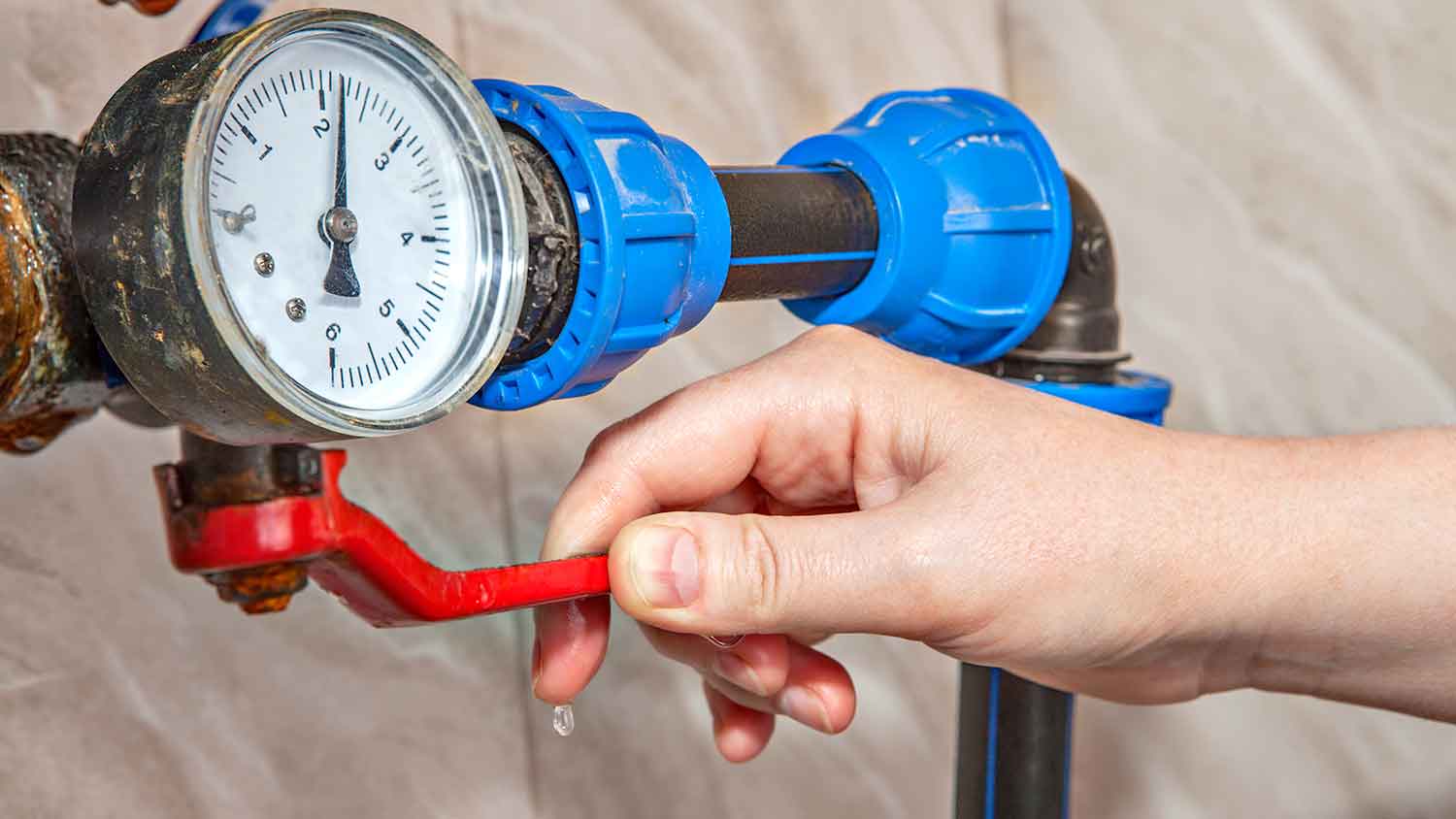
Budget for septic tank repair costs based on factors including parts, materials, labor, ongoing maintenance costs, and more.
Septic pros empty tanks safely and legally every three to five years


Septic professionals empty tanks using vacuum trucks and haul waste to treatment facilities.
Most homeowners pay $425 for one-time pumping, with a $300 to $560 range.
Tanks typically need pumping every three to five years, based on tank size and household use.
Hiring licensed pros protects you from biohazards and potential legal issues.
This article was created using automation technology and thoroughly fact-checked and edited by HomeAdvisor Editor Ryan Noonan.
If you’re wondering who empties septic tanks, the answer is licensed septic professionals. These specialists use industrial-grade equipment and vacuum trucks to pump and haul waste safely and legally. Because sewage is a biohazard, many areas allow only licensed providers to perform pumping and disposal.
You should schedule pumping every three to five years, depending on tank size and household use. Most tanks hold 1,000 to 1,500 gallons, so this is not a DIY job. A professional visit can also include a basic check that helps prevent odors and backups.
Hiring a septic professional ensures safe, compliant pumping with the correct equipment. Pros bring a vacuum truck, large hoses, and protective gear, and they handle biohazardous waste under local rules. During service, they can check system performance so you stay ahead of issues and odors.
Other advantages of hiring a septic professional include:
Licensed to pump and haul septic waste where required
Trained to manage biohazards safely and correctly
Uses a heavy-duty vacuum truck for efficient pumping
Minimizes risk of tank or system damage
Complies with local and state environmental regulations
Reduces your exposure to sewage and health risks
Assesses system condition during service
Helps prevent odors and backups with routine care
Plumbers have valuable skills, but they may not be the right choice for septic pumping. Emptying a septic tank requires specialized tools, protective gear, and a vacuum truck that everyday plumbers do not carry. Septic tank cleaners also maintain specific licenses that allow them to haul waste to treatment plants legally.
For pumping and hauling, hire sewage and septic professionals. If you’re unsure who to call, you might want to consider a septic tank pro near you to help identify or refer you to the right septic service provider. Relying on a plumber for this task can delay proper service and does not address the legal and safety requirements involved.
Pros follow a proven process using industrial equipment designed for hazardous waste:
Arrive wearing protective gear and locate the tank access.
Connect large hoses and set up pumps from the vacuum truck.
Pump wastewater and solids into the truck’s secure tank.
Transport waste to a treatment facility for proper processing.
Leave the tank emptied and ready to serve your home for three to five years
This approach prioritizes safe handling, containment, and transport using the vacuum truck, hoses, and pumps.
A one-time septic tank pump costs $426 on average, with prices ranging from $300 to $560. You should empty the tank every few years, based on your tank size and household usage. Regular pumping prevents waste buildup that can seep into the drain field and back up into pipes. Spring is considered the best time to pump because ground access is easier once freezing conditions pass, though summer and fall are also workable seasons in some regions.
From average costs to expert advice, get all the answers you need to get your job done.

Budget for septic tank repair costs based on factors including parts, materials, labor, ongoing maintenance costs, and more.

The cost of installing a whole-house water filtration system depends on the type and number of filters you choose. Use this guide to budget for your project.

Explore the landscape of rainwater collection system costs and see how system size, storage location, and filtration impact your total investment.

Wondering who to call for septic problems? Learn when to hire plumbers vs septic pros, warning signs, and average repair and pumping costs

Learn who to call for a water main break. See why a licensed plumber is best and what repairs cost so you can act fast

Main water line leak repair costs depend on how much of the line needs repair and other factors. Learn what influences the price before you take on this project.